OneLab library
Name
Published by
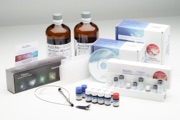
This advanced method offers an end-to-end solution developed around an advanced application, a specialized kit, or an analytical system. It delivers complete functional, ready-to-use protocols that are qualitatively and quantitatively assessed for consistency, executability, and repeatability, usually without needing to make any changes. It operates per batch size and is scalable to accommodate changing requirements.
The task of accurately separating, identifying, and quantitating amino acids in the research, development, and commercialization of food, feed, and biotherapeutic products is challenging.
To analyze released amino acids by HPLC or UPLC, Waters provides many solutions that use pre-column derivatization so that amino acids can be analyzed by optical detection.

This example method provides a freely adjustable framework for measuring the adaptability of the OneLab environment to workflows from different application fields. It helps to understand various nuances of the code-free, universal protocol designer and provides general indications as to the feasibility of a project. Scripts generally require fine adjustment to correct for variables and support specific labware implementation.
Investigating the ACE inhibitory activity of active biomolecules is a valuable source of drugs for the treatment of cardiovascular diseases.
OneLab helps mitigate the effects of pipetting errors and variability during the assessment of ACE inhibition and IC50 determination. This allows for the delivery of more reliable and accurate data, while eventually accelerating biological discovery.
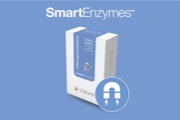
This advanced method offers an end-to-end solution developed around an advanced application, a specialized kit, or an analytical system. It delivers complete functional, ready-to-use protocols that are qualitatively and quantitatively assessed for consistency, executability, and repeatability, usually without needing to make any changes. It operates per batch size and is scalable to accommodate changing requirements.
Developing a robust process for manufacturing therapeutic mAbs poses many analytical challenges. This requires high-throughput methods with fast sample preparation, robust analytics, and easy data interpretation.
Here we present a fully automated workflow for sample preparation for middle-level analysis by LC-MS of mAbs directly from crude protein samples such as harvested cell culture fluid.
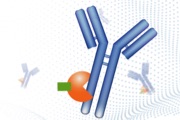
This basic method provides the core methodology for translating a workflow into OneLab-executable script(s) as an attempt to fully or semi-automate a specific procedure. It demonstrates the benefits of automation and highlights OneLab capabilities and best practices to promote solution adoption, helping transition from manual to a more automated approach. It can be used alone or serves as a building block for a more complex workflow and is easily adaptable to users' requirements.
Antibody purification is routinely performed in biopharmaceutical research. Here, we present a rapid automated Protein A-based antibody purification method using magnetic beads. The robust protocol ensures high antibody recovery.
The automation capabilities of the Andrew+ Pipetting Robot allow for the flexibility of processing samples up to 48 samples depending on throughput needs.
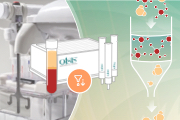
This basic method provides the core methodology for translating a workflow into OneLab-executable script(s) as an attempt to fully or semi-automate a specific procedure. It demonstrates the benefits of automation and highlights OneLab capabilities and best practices to promote solution adoption, helping transition from manual to a more automated approach. It can be used alone or serves as a building block for a more complex workflow and is easily adaptable to users' requirements.
The following work demonstrates the capabilities of the Andrew+ Pipetting Robot in combination with the Extraction+ Connected Device for fully automated bioanalytical solid phase extraction (SPE) for a variety of pharmaceutical drugs from plasma.
Protocols for both cartridge and 96-well SPE plate formats are included. Calibration curves and QC samples are created in one protocol and extracted in a separate one.
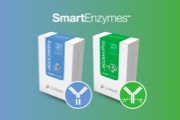
This advanced method offers an end-to-end solution developed around an advanced application, a specialized kit, or an analytical system. It delivers complete functional, ready-to-use protocols that are qualitatively and quantitatively assessed for consistency, executability, and repeatability, usually without needing to make any changes. It operates per batch size and is scalable to accommodate changing requirements.
Subunit analysis of therapeutic antibodies by LC-MS using FabRICATOR (IdeS) digestion provides a rapid approach for analyzing many important quality attributes including Fc glycosylation and oxidation.
Here, we describe protocols for automated sample preparation using the Andrew+ Pipetting Robot.
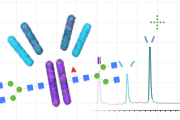
This basic method provides the core methodology for translating a workflow into OneLab-executable script(s) as an attempt to fully or semi-automate a specific procedure. It demonstrates the benefits of automation and highlights OneLab capabilities and best practices to promote solution adoption, helping transition from manual to a more automated approach. It can be used alone or serves as a building block for a more complex workflow and is easily adaptable to users' requirements.
High-throughput analytical platforms for the characterization of proteins produced at clone selection stage have also been increasingly on demand to facilitate the development of these biopharmaceuticals.
Here we present a fully automated workflow for sample preparation and LC-MS analysis of mAbs obtained directly from unrefined samples such as spent cell culture media including host cells protein.
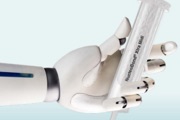
This advanced method offers an end-to-end solution developed around an advanced application, a specialized kit, or an analytical system. It delivers complete functional, ready-to-use protocols that are qualitatively and quantitatively assessed for consistency, executability, and repeatability, usually without needing to make any changes. It operates per batch size and is scalable to accommodate changing requirements.
With our long-standing experience in chromatography and nucleic acid purification, MACHEREY-NAGEL is an ideal choice for high-quality plasmid preps.
Together with Andrew Alliance, we have developed the hardware and protocols for easy automation of up to 6 plasmid midi preps in parallel, providing you with a reliable solution for plasmid purification without the tedious work of manually processing samples.
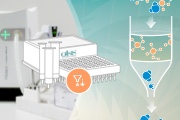
This basic method provides the core methodology for translating a workflow into OneLab-executable script(s) as an attempt to fully or semi-automate a specific procedure. It demonstrates the benefits of automation and highlights OneLab capabilities and best practices to promote solution adoption, helping transition from manual to a more automated approach. It can be used alone or serves as a building block for a more complex workflow and is easily adaptable to users' requirements.
This work demonstrates the capabilities of the Andrew+ Pipetting Robot configured with the Extraction+ Connected Device for fully automated SPE sample preparation using cartridge and plate formats.
Described Protocols use a simple 3-step SPE procedure (load, wash, and elution) in combination with Waters reversed-phase Oasis HLB cartridges (1, 3, and 6 cc size) and 96-well macro and μElution plates.
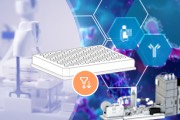
This advanced method offers an end-to-end solution developed around an advanced application, a specialized kit, or an analytical system. It delivers complete functional, ready-to-use protocols that are qualitatively and quantitatively assessed for consistency, executability, and repeatability, usually without needing to make any changes. It operates per batch size and is scalable to accommodate changing requirements.
An automated Protein A affinity purification method for up to 96 culture media samples in a well plate format is presented. The automation uses Cytiva antibody purification resin1 on Andrew+ liquid handling robot.
The purification consumes 120 µL HCCF to generate 100 µL of antibody in neutral pH buffer solution. Dynamic processing of 96 samples demonstrated excellent recovery and reproducibility.
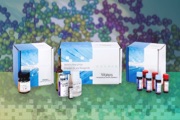
This basic method provides the core methodology for translating a workflow into OneLab-executable script(s) as an attempt to fully or semi-automate a specific procedure. It demonstrates the benefits of automation and highlights OneLab capabilities and best practices to promote solution adoption, helping transition from manual to a more automated approach. It can be used alone or serves as a building block for a more complex workflow and is easily adaptable to users' requirements.
Bottom-up proteomics is a useful approach for the discovery of signature peptides to identify specific proteins found in the complex food matrix.
Here we present a fully automated sample preparation protocol for protein digestion using the ProteinWorks™ kit, and the final mixture obtained will be ready for a typical LCMS method.
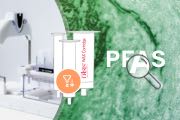
Automation of PFAS Extraction in Firefighting Foam using SPE with Oasis WAX/GCB cartridges
Waters Corporation
This basic method provides the core methodology for translating a workflow into OneLab-executable script(s) as an attempt to fully or semi-automate a specific procedure. It demonstrates the benefits of automation and highlights OneLab capabilities and best practices to promote solution adoption, helping transition from manual to a more automated approach. It can be used alone or serves as a building block for a more complex workflow and is easily adaptable to users' requirements.
A major component of many Class B firefighting fluids (FFF) is PFAS, particularly aqueous film forming foams (AFFF). However, the concentration of PFAS in AFFF is extremely high. Preparing FFF samples for LC-MS/MS analysis involves many labor-intensive pipetting steps. An automated workflow is described in this protocol to improve laboratory efficiency and reduce human error using Andrew+ and Extraction+, along with Oasis WAX/GCB cartridges, which maximizes PFAS recovery while reducing matrix interferences for LC-MS/MS analysis.
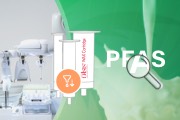
This basic method provides the core methodology for translating a workflow into OneLab-executable script(s) as an attempt to fully or semi-automate a specific procedure. It demonstrates the benefits of automation and highlights OneLab capabilities and best practices to promote solution adoption, helping transition from manual to a more automated approach. It can be used alone or serves as a building block for a more complex workflow and is easily adaptable to users' requirements.
The European Food Safety Authority (EFSA) predicts that PFAS exposure is primarily through food. Milk, being the staple food product for toddlers and children, would affect them disproportionately compared to adults, so there is a need to monitor PFAS levels in milk.
In addition to using Andrew+ and Extraction+ for improved throughput and reduced errors, this method uses Oasis WAX SPE cartridges to enhance PFAS recovery and reduce matrix interferences for LC-MS/MS analysis. Automation also allowed for washing the walls of the sample vials with eluent, increasing the recovery of PFAS.
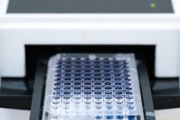
This example method provides a freely adjustable framework for measuring the adaptability of the OneLab environment to workflows from different application fields. It helps to understand various nuances of the code-free, universal protocol designer and provides general indications as to the feasibility of a project. Scripts generally require fine adjustment to correct for variables and support specific labware implementation.
The Bicinchoninic Acid (BCA) Protein Assay is a highly sensitive colorimetric method designed to measure the concentration of a protein of interest compared to a protein standard.
OneLab guides you through the workflow and assists in setting up serial dilutions of the standard protein so as to ensure accurate estimation of your protein concentration and full traceability.
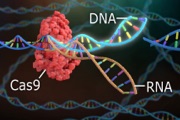
This example method provides a freely adjustable framework for measuring the adaptability of the OneLab environment to workflows from different application fields. It helps to understand various nuances of the code-free, universal protocol designer and provides general indications as to the feasibility of a project. Scripts generally require fine adjustment to correct for variables and support specific labware implementation.
Gene Knockout is a technique that is fundamental to the investigation of gene function, which has been made easier and faster by the revolutionary breakthrough of CRISPR technology.
OneLab provides clear step-by-step guidance on correct execution of the clonal isolation process to ensure optimal input, as well as identification of wells with single colonies. Additionally, it records each step in these procedures, enabling full traceability.
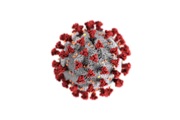
This example method provides a freely adjustable framework for measuring the adaptability of the OneLab environment to workflows from different application fields. It helps to understand various nuances of the code-free, universal protocol designer and provides general indications as to the feasibility of a project. Scripts generally require fine adjustment to correct for variables and support specific labware implementation.
Real-time qPCR is widely used to detect infectious pathogens in human secretions. Preventive, control measures against 2019-nCoV critically depend on the timely and accurate diagnosis of cases.
Automating the reaction preparation of the 2019-nCoV Real-Time RT-PCR Diagnostic Panel will significantly reduce pipetting errors and decreases hands-on time, ensuring more accurate and timely results.
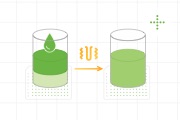
This basic method provides the core methodology for translating a workflow into OneLab-executable script(s) as an attempt to fully or semi-automate a specific procedure. It demonstrates the benefits of automation and highlights OneLab capabilities and best practices to promote solution adoption, helping transition from manual to a more automated approach. It can be used alone or serves as a building block for a more complex workflow and is easily adaptable to users' requirements.
Dilute-and-shoot is a simple and rapid analytical method for multi-analyte identification. Although sample preparation is minimal, it remains a critical step to ensure accurate quantitation.
The protocols described here use the dilute-and-shoot approach and take advantage of the Andrew+ capabilities to automate sample preparation ensuring maximum pipetting precision and efficient mixing.
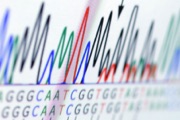
This example method provides a freely adjustable framework for measuring the adaptability of the OneLab environment to workflows from different application fields. It helps to understand various nuances of the code-free, universal protocol designer and provides general indications as to the feasibility of a project. Scripts generally require fine adjustment to correct for variables and support specific labware implementation.
Library preparation aims to build a collection of DNA fragments for next-generation sequencing (NGS). A high-quality DNA library guarantees uniform and consistent genome coverage, thus delivering comprehensive and reliable sequencing data.
OneLab helps you streamline and trace critical steps in your library preparation process to achieve the best possible DNA quality and purity.
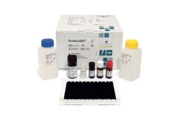
This example method provides a freely adjustable framework for measuring the adaptability of the OneLab environment to workflows from different application fields. It helps to understand various nuances of the code-free, universal protocol designer and provides general indications as to the feasibility of a project. Scripts generally require fine adjustment to correct for variables and support specific labware implementation.
Adequate endotoxin testing is invaluable in ensuring quality and safety. LAL assays require cumbersome sample preparation and are easily disturbed by different constituents of the sample.
EndoLISA, combining solid-phase format and synthetic rFC, achieves sensitive detection of endotoxin by eliminating interfering components. It can be automated, which accelerates the test with minimal human error.
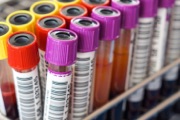
This example method provides a freely adjustable framework for measuring the adaptability of the OneLab environment to workflows from different application fields. It helps to understand various nuances of the code-free, universal protocol designer and provides general indications as to the feasibility of a project. Scripts generally require fine adjustment to correct for variables and support specific labware implementation.
Circulating cell-free DNA derived from diseased cells is a promising biomarker for non-invasive diagnosis and treatment monitoring. Harnessing the potential of ccfDNA involves not only an understanding of its biology and dynamics but also the standardization of isolation methods.
OneLab can act as a platform to execute your ccfDNA isolation protocol, mitigating the effect of pipetting variability.
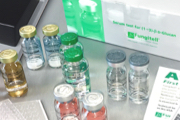
This advanced method offers an end-to-end solution developed around an advanced application, a specialized kit, or an analytical system. It delivers complete functional, ready-to-use protocols that are qualitatively and quantitatively assessed for consistency, executability, and repeatability, usually without needing to make any changes. It operates per batch size and is scalable to accommodate changing requirements.
The Fungitell® chromogenic assay is used to detect (1→3)-β-D-Glucan, a biomarker for invasive fungal disease. The Limulus Amebocyte Lysate (LAL) based assay requires a complex plate building process with numerous sample handling and pipetting steps including standard curve preparation, control testing, in-plate sample pretreatment, and reagent dispensing.
These time consuming and tedious steps can be accomplished using an Andrew+ robot.
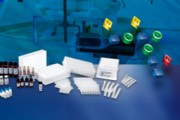
This advanced method offers an end-to-end solution developed around an advanced application, a specialized kit, or an analytical system. It delivers complete functional, ready-to-use protocols that are qualitatively and quantitatively assessed for consistency, executability, and repeatability, usually without needing to make any changes. It operates per batch size and is scalable to accommodate changing requirements.
Monitoring N-Glycosylation is increasingly applied in the development of biopharmaceuticals and the study of diseased cells. Glycan preparation is laborious, and analytical methods lack sensitivity.
GlycoWorks RapiFluor-MS accelerates N-glycan preparation while improving detection sensitivity. Repeatability and traceability are assured when paired with Waters Lab automation solutions.
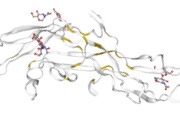
This basic method provides the core methodology for translating a workflow into OneLab-executable script(s) as an attempt to fully or semi-automate a specific procedure. It demonstrates the benefits of automation and highlights OneLab capabilities and best practices to promote solution adoption, helping transition from manual to a more automated approach. It can be used alone or serves as a building block for a more complex workflow and is easily adaptable to users' requirements.
N-glycans affect the safety and efficacy of many therapeutic proteins and are routinely monitored for the quality of biotherapeutics.
Here, we present a complementary method for analyzing the complex N-glycans released from human chorionic gonadotrophin (hCG). The automated method provides a reproducible glycan profile and is suitable for commercial as well as research environments.
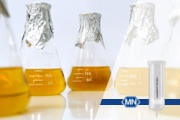
This basic method provides the core methodology for translating a workflow into OneLab-executable script(s) as an attempt to fully or semi-automate a specific procedure. It demonstrates the benefits of automation and highlights OneLab capabilities and best practices to promote solution adoption, helping transition from manual to a more automated approach. It can be used alone or serves as a building block for a more complex workflow and is easily adaptable to users' requirements.
With our long-standing experience in chromatography and nucleic acid purification, MACHEREY-NAGEL is an ideal choice for high-quality plasmid preps.
Using NucleoBond Xtra Maxi, yields of up to 1000 μg of ultrapure plasmid DNA can be obtained based on reliable and well-established anion exchange chromatography.
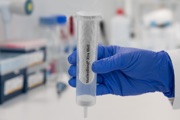
This basic method provides the core methodology for translating a workflow into OneLab-executable script(s) as an attempt to fully or semi-automate a specific procedure. It demonstrates the benefits of automation and highlights OneLab capabilities and best practices to promote solution adoption, helping transition from manual to a more automated approach. It can be used alone or serves as a building block for a more complex workflow and is easily adaptable to users' requirements.
With our long-standing experience in chromatography and nucleic acid purification, MACHEREY-NAGEL is an ideal choice for high-quality plasmid preps.
Using NucleoBond Xtra Midi, yields of up to 500 μg of ultrapure plasmid DNA can be obtained based on reliable and well-established anion exchange chromatography.
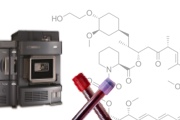
This basic method provides the core methodology for translating a workflow into OneLab-executable script(s) as an attempt to fully or semi-automate a specific procedure. It demonstrates the benefits of automation and highlights OneLab capabilities and best practices to promote solution adoption, helping transition from manual to a more automated approach. It can be used alone or serves as a building block for a more complex workflow and is easily adaptable to users' requirements.
Here we present an automation solution for the quantification of four immunosuppressive drugs in whole human blood. These four drugs are commonly used in clinical research for studying therapeutic drug monitoring.
The automated method produces comparable results to the manual workflow and offers time-saving benefits with up to 96 samples prepared in less than an hour and 30 minutes.
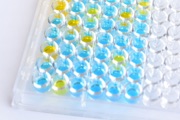
This example method provides a freely adjustable framework for measuring the adaptability of the OneLab environment to workflows from different application fields. It helps to understand various nuances of the code-free, universal protocol designer and provides general indications as to the feasibility of a project. Scripts generally require fine adjustment to correct for variables and support specific labware implementation.
Sandwich ELISA is the most robust and sensitive type of ELISA technique. ELISA protocols traditionally have a complex workflow that requires optimization to obtain accurate results with low analytical error.
To maximize accuracy and reproducibility, OneLab can guide you through your optimized protocol to ensure consistent pipetting throughout the assay and between sample replicates.
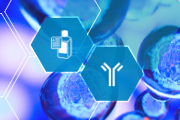
This advanced method offers an end-to-end solution developed around an advanced application, a specialized kit, or an analytical system. It delivers complete functional, ready-to-use protocols that are qualitatively and quantitatively assessed for consistency, executability, and repeatability, usually without needing to make any changes. It operates per batch size and is scalable to accommodate changing requirements.
These protocols enables upstream engineers to routinely collect product quality attributes and metabolite information for monitoring and as part of the Waters Bioprocess Walk-Up Solutions.
With the OneLab waters_connect integration, Waters provides a streamlined and user-friendly process for performing precise and accurate sample preparation using the Andrew+ Pipetting Robot directly followed by high-quality LC-MS data acquired using the BioAccord System.
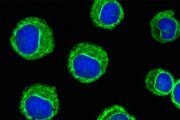
This example method provides a freely adjustable framework for measuring the adaptability of the OneLab environment to workflows from different application fields. It helps to understand various nuances of the code-free, universal protocol designer and provides general indications as to the feasibility of a project. Scripts generally require fine adjustment to correct for variables and support specific labware implementation.
Standardizing cell preparation for flow cytometry analysis is an effective way to ensure optimal permeabilization and staining of cells, thereby resulting in consistent fluorescence intensity and event detection rate.
In line with this objective, OneLab provides valuable resources to guide sample preparation and liquid handling, ensuring the delivery of reproducible results.
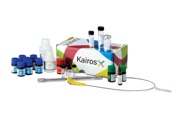
This basic method provides the core methodology for translating a workflow into OneLab-executable script(s) as an attempt to fully or semi-automate a specific procedure. It demonstrates the benefits of automation and highlights OneLab capabilities and best practices to promote solution adoption, helping transition from manual to a more automated approach. It can be used alone or serves as a building block for a more complex workflow and is easily adaptable to users' requirements.
To analyze amino acids in biological samples by LC-MS, Waters provides a fast reproducible solution that uses pre-column derivatization built on the AccQ•Tag reaction chemistry, with the ability to quantitate over 40 amino acids in less than 10 minutes.
Waters Kairos Amino Acid Kit – High Throughput (500+) enables precise and accurate preparation of over 40 amino acids using the Andrew+ Pipetting Robot.
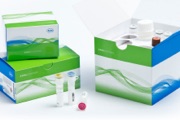
This example method provides a freely adjustable framework for measuring the adaptability of the OneLab environment to workflows from different application fields. It helps to understand various nuances of the code-free, universal protocol designer and provides general indications as to the feasibility of a project. Scripts generally require fine adjustment to correct for variables and support specific labware implementation.
Accurate quantification of Illumina NGS libraries is crucial to obtaining ideal cluster density and equal sample representation in the library pool.
The reliability and reproducibility of qPCR measurements depend on accurate pipetting during sample dilutions and qPCR reaction setup. OneLab helps in minimizing user-related variations in liquid handling by providing full guidance and traceability.
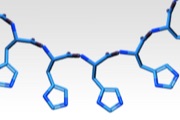
This example method provides a freely adjustable framework for measuring the adaptability of the OneLab environment to workflows from different application fields. It helps to understand various nuances of the code-free, universal protocol designer and provides general indications as to the feasibility of a project. Scripts generally require fine adjustment to correct for variables and support specific labware implementation.
Simple, one-step affinity purification of recombinant proteins using magnetic beads is an attractive option to explore optimal expression and analytical conditions, thereby accelerating the translation of research findings into practice.
The aim of OneLab is to streamline protein purification by integrating connected devices for magnetic separation as well as to ensure consistent pipetting.
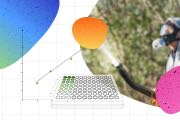
This basic method provides the core methodology for translating a workflow into OneLab-executable script(s) as an attempt to fully or semi-automate a specific procedure. It demonstrates the benefits of automation and highlights OneLab capabilities and best practices to promote solution adoption, helping transition from manual to a more automated approach. It can be used alone or serves as a building block for a more complex workflow and is easily adaptable to users' requirements.
Pesticide analysis is critical to ensure agricultural commodities comply with legal limits. Matrix effects are a common concern, as they can compromise detection and quantification quality.
Here, we present a fully automated protocol for matrix-matched standard curve preparation ready for a typical LC-MS/MS method.
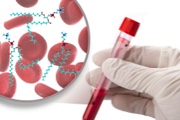
This basic method provides the core methodology for translating a workflow into OneLab-executable script(s) as an attempt to fully or semi-automate a specific procedure. It demonstrates the benefits of automation and highlights OneLab capabilities and best practices to promote solution adoption, helping transition from manual to a more automated approach. It can be used alone or serves as a building block for a more complex workflow and is easily adaptable to users' requirements.
Lipids are important molecules involved in energy metabolism, signaling, and membrane formation. They are pivotal in understanding disease and its progression.
Here we highlight an automated MTBE liquid-liquid extraction method of lipids and small molecules from biological matrices. The automated method helps streamline this multi-step extraction protocol saving time and reducing operator errors.
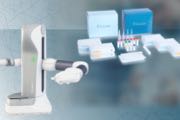
This advanced method offers an end-to-end solution developed around an advanced application, a specialized kit, or an analytical system. It delivers complete functional, ready-to-use protocols that are qualitatively and quantitatively assessed for consistency, executability, and repeatability, usually without needing to make any changes. It operates per batch size and is scalable to accommodate changing requirements.
The MxP® Quant 500 is a comprehensive, ready-to-use kit crafted for precise quantitative metabolic profiling and rigorously quality-controlled to ensure optimal performance.
Leveraging the Andrew+ pipetting system and the corresponding OneLab protocol enhances throughput, reduces personnel involvement, and increases reproducibility, making it ideally suited for extensive large-scale studies.
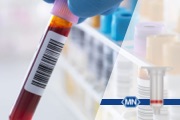
This basic method provides the core methodology for translating a workflow into OneLab-executable script(s) as an attempt to fully or semi-automate a specific procedure. It demonstrates the benefits of automation and highlights OneLab capabilities and best practices to promote solution adoption, helping transition from manual to a more automated approach. It can be used alone or serves as a building block for a more complex workflow and is easily adaptable to users' requirements.
Isolation of nucleic acids from various sample materials is the basis for a large variety of downstream analysis in the field of research, applied science, and diagnostics.
MACHEREY-NAGEL provides a diverse set of optimized solutions for nucleic acid isolation including genomic DNA isolation from human specimens, such as whole blood, serum, plasma, or other body fluids.
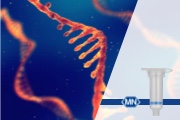
This basic method provides the core methodology for translating a workflow into OneLab-executable script(s) as an attempt to fully or semi-automate a specific procedure. It demonstrates the benefits of automation and highlights OneLab capabilities and best practices to promote solution adoption, helping transition from manual to a more automated approach. It can be used alone or serves as a building block for a more complex workflow and is easily adaptable to users' requirements.
Critical factors when purifying RNA are the complete removal of contaminating DNA (gDNA) and the immediate prevention of degradation of RNA.
MACHEREY-NAGEL RNA purification kits in combination with Pipette+ guidance deliver reliably pure RNA for your demanding applications.
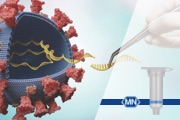
This basic method provides the core methodology for translating a workflow into OneLab-executable script(s) as an attempt to fully or semi-automate a specific procedure. It demonstrates the benefits of automation and highlights OneLab capabilities and best practices to promote solution adoption, helping transition from manual to a more automated approach. It can be used alone or serves as a building block for a more complex workflow and is easily adaptable to users' requirements.
Isolation of nucleic acids from various sample materials is the basis for a large variety of downstream analysis in the field of research, applied science, and diagnostics.
MACHEREY-NAGEL provides a diverse set of optimized solutions for nucleic acid isolation including viral RNA and DNA isolation from human specimens, such as swabs or viral transport media.
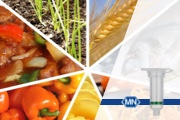
This basic method provides the core methodology for translating a workflow into OneLab-executable script(s) as an attempt to fully or semi-automate a specific procedure. It demonstrates the benefits of automation and highlights OneLab capabilities and best practices to promote solution adoption, helping transition from manual to a more automated approach. It can be used alone or serves as a building block for a more complex workflow and is easily adaptable to users' requirements.
MACHEREY-NAGEL kits are developed to efficiently purify high-quality DNA, especially from challenging samples.
Overcome difficulties associated with efficient isolation of nucleic acids from hard-to-lyse samples using kits tailored to distinct sample types such as food, soil, stool, and plants and achieve the best possible reproducibility with Pipette+.
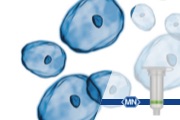
This basic method provides the core methodology for translating a workflow into OneLab-executable script(s) as an attempt to fully or semi-automate a specific procedure. It demonstrates the benefits of automation and highlights OneLab capabilities and best practices to promote solution adoption, helping transition from manual to a more automated approach. It can be used alone or serves as a building block for a more complex workflow and is easily adaptable to users' requirements.
Isolation of nucleic acids from various sample materials is the basis for a large variety of downstream analysis in the field of research, applied science, and diagnostics.
MACHEREY-NAGEL provides a diverse set of optimized solutions for nucleic acid isolation including genomic DNA isolation from tissues and cells.
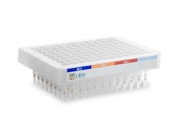
This basic method provides the core methodology for translating a workflow into OneLab-executable script(s) as an attempt to fully or semi-automate a specific procedure. It demonstrates the benefits of automation and highlights OneLab capabilities and best practices to promote solution adoption, helping transition from manual to a more automated approach. It can be used alone or serves as a building block for a more complex workflow and is easily adaptable to users' requirements.
Mixed-mode SPE is a sample clean-up technique for LC-MS analysis. Selecting a mixed-mode SPE sorbent can be challenging, requiring a good understanding of the sorbent/analyte chemistry. In addition, it involves accurate and precise pipetting steps.
This protocol demonstrates a rapid and robust Andrew+ automated mixed-mode SPE sorbent selection method using the Oasis 2x4 sorbent selection plate.
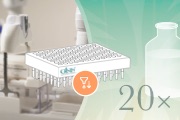
This advanced method offers an end-to-end solution developed around an advanced application, a specialized kit, or an analytical system. It delivers complete functional, ready-to-use protocols that are qualitatively and quantitatively assessed for consistency, executability, and repeatability, usually without needing to make any changes. It operates per batch size and is scalable to accommodate changing requirements.
Solid phase extraction (SPE) is a routinely used sample preparation technique in bioanalytical/DMPK laboratories, selectively capturing the analyte or drug target while removing biomatrix components, thus improving the sensitivity, selectivity, and robustness of the analytical method. SPE is often perceived as complex and labor-intensive, requiring lengthy method optimization to achieve high analyte recovery.
The 20 bottle method optimization approach described in the Oasis HLB care & use manual provides an elegant way of optimizing the organic composition of the wash and elution solvents in a single experiment, significantly simplifying the method development process.
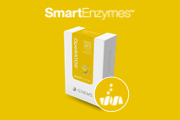
This advanced method offers an end-to-end solution developed around an advanced application, a specialized kit, or an analytical system. It delivers complete functional, ready-to-use protocols that are qualitatively and quantitatively assessed for consistency, executability, and repeatability, usually without needing to make any changes. It operates per batch size and is scalable to accommodate changing requirements.
Developing a robust process for manufacturing biopharmaceuticals poses many challenges. It requires high-throughput methods with fast sample prep, reproducible analytics, and easy data interpretation.
Here we present an automated sample prep workflow to compare the O-glycopeptide profiles of heavily O-glycosylated protein therapeutics using the O-protease OpeRATOR for subsequent LC-MS analysis.
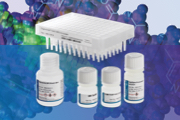
This advanced method offers an end-to-end solution developed around an advanced application, a specialized kit, or an analytical system. It delivers complete functional, ready-to-use protocols that are qualitatively and quantitatively assessed for consistency, executability, and repeatability, usually without needing to make any changes. It operates per batch size and is scalable to accommodate changing requirements.
Sample preparation for therapeutic oligonucleotide (ONT) bioanalysis can be challenging, requiring extensive method development. Some workflows, like liquid-liquid extraction (LLE) can be difficult to automate, while others may use detergent-based reagents, requiring extensive washing and sample evaporation/reconstitution to make it LC-MS compatible.
OligoWorks Kits are simple, standardized, flexible and automation-friendly sample preparation kits designed to enable accurate and robust LC-MS based bioanalytical quantitation across a diversity of oligonucleotides.
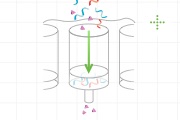
This basic method provides the core methodology for translating a workflow into OneLab-executable script(s) as an attempt to fully or semi-automate a specific procedure. It demonstrates the benefits of automation and highlights OneLab capabilities and best practices to promote solution adoption, helping transition from manual to a more automated approach. It can be used alone or serves as a building block for a more complex workflow and is easily adaptable to users' requirements.
Protein precipitation is the simplest form of plasma/serum preparation. However, pipetting errors and contamination during sample preparation can impair assay sensitivity, robustness, and precision.
In the following work, Andrew+ was used to prepare and extract analytes from complex biological matrices, using the Ostro sample prep plate, with subsequent LC-MS/MS analysis and quantification.
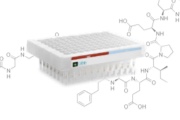
This basic method provides the core methodology for translating a workflow into OneLab-executable script(s) as an attempt to fully or semi-automate a specific procedure. It demonstrates the benefits of automation and highlights OneLab capabilities and best practices to promote solution adoption, helping transition from manual to a more automated approach. It can be used alone or serves as a building block for a more complex workflow and is easily adaptable to users' requirements.
Therapeutic and endogenous peptides can be difficult to extract using SPE with high reproducibility. This is often due to user errors encountered during the extraction process.
Here we present an extraction protocol for peptides using the Andrew+ robot which demonstrates rapid and robust automated mixed-mode SPE sorbent selection using the Oasis Peptide Method Development 96 well μElution Plate.
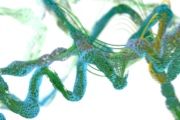
This advanced method offers an end-to-end solution developed around an advanced application, a specialized kit, or an analytical system. It delivers complete functional, ready-to-use protocols that are qualitatively and quantitatively assessed for consistency, executability, and repeatability, usually without needing to make any changes. It operates per batch size and is scalable to accommodate changing requirements.
Reproducible peptide maps are valuable for the routine analysis of biotherapeutic proteins in R&D, QC, and manufacturing environments.
Here, we present an automated comprehensive sample prep protocol using the PeptideWorks™ sample preparation kit and the Andrew+ Pipetting Robot. The automated method provides a reproducible protein digest and is suitable for commercial and research environments.
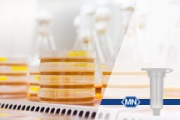
This basic method provides the core methodology for translating a workflow into OneLab-executable script(s) as an attempt to fully or semi-automate a specific procedure. It demonstrates the benefits of automation and highlights OneLab capabilities and best practices to promote solution adoption, helping transition from manual to a more automated approach. It can be used alone or serves as a building block for a more complex workflow and is easily adaptable to users' requirements.
Plasmid purification, PCR Clean-up and DNA extraction from gels are the most commonly used applications in molecular biology labs. Both applications are also important steps in the cloning workflow.
The MACHEREY-NAGEL NucleoSpin Plasmid and NucleoSpin Gel and PCR Clean-up kit in combination with Pipette+ is the easiest way to purify isolate plasmid DNA and DNA fragments from agarose gels or PCR reactions.
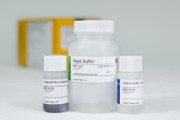
This example method provides a freely adjustable framework for measuring the adaptability of the OneLab environment to workflows from different application fields. It helps to understand various nuances of the code-free, universal protocol designer and provides general indications as to the feasibility of a project. Scripts generally require fine adjustment to correct for variables and support specific labware implementation.
Modern sequencing technology requires precise and reliable DNA sample clean-up and size-selective purification to ensure accurate and consistent data.
Using the ProNex® size-selection chemistry, OneLab allows clean and error-free processing of your DNA samples with full traceability of individual pipetting actions.
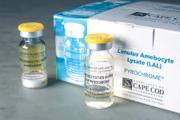
This advanced method offers an end-to-end solution developed around an advanced application, a specialized kit, or an analytical system. It delivers complete functional, ready-to-use protocols that are qualitatively and quantitatively assessed for consistency, executability, and repeatability, usually without needing to make any changes. It operates per batch size and is scalable to accommodate changing requirements.
Endotoxin testing is a requirement for any injectable drug or medical device to ensure safety. Pyrochrome® is a 96 well microplate based chromogenic Limulus Amebocyte Lysate (LAL) assay that requires a complex plate building process with numerous pipetting steps.
Standard curve and positive product control (PPC) preparation, sample arraying, and reagent dispensing are time consuming and tedious steps that can be accomplished using an Andrew+ robot.
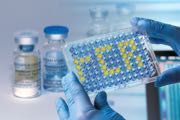
PyroSmart NextGen® Recombinant Cascade Reagent (rCR) for Endotoxin Detection
Associates of Cape Cod, Inc.
This advanced method offers an end-to-end solution developed around an advanced application, a specialized kit, or an analytical system. It delivers complete functional, ready-to-use protocols that are qualitatively and quantitatively assessed for consistency, executability, and repeatability, usually without needing to make any changes. It operates per batch size and is scalable to accommodate changing requirements.
Endotoxin testing is a requirement for any injectable drug or medical device to ensure safety. PyroSmart NextGen® is a 96 well microplate based chromogenic that utilizes recombinant proteins as key inputs.
The assay requires a complex plate-building process with numerous pipetting steps. Standard curve and positive product control (PPC) preparation, sample arraying, and reagent dispensing are time-consuming and tedious steps that can be accomplished using an Andrew+ robot.
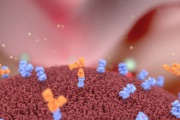
This example method provides a freely adjustable framework for measuring the adaptability of the OneLab environment to workflows from different application fields. It helps to understand various nuances of the code-free, universal protocol designer and provides general indications as to the feasibility of a project. Scripts generally require fine adjustment to correct for variables and support specific labware implementation.
The expression level of specific receptors serves as a biomarker for pathological conditions. The quantitation of their number on target cells is very informative from a diagnostic and therapeutic perspective.
Consistent and repeatable sample preparation and staining of calibration beads and cells are ensured through accurate pipetting using OneLab, thereby minimizing variation in ABC assignments.
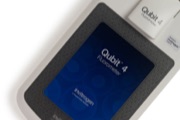
This example method provides a freely adjustable framework for measuring the adaptability of the OneLab environment to workflows from different application fields. It helps to understand various nuances of the code-free, universal protocol designer and provides general indications as to the feasibility of a project. Scripts generally require fine adjustment to correct for variables and support specific labware implementation.
Accurate and consistent quantitation of nucleic acids is a prerequisite for high-value applications in genomics. Fluorometric quantification provides a fast, sensitive and selective measurement of the concentration of nucleic acids in your sample.
OneLab enables you to record the step-by-step execution of your sample preparation, ensuring easy and error-free processing.
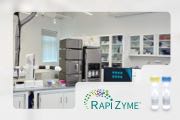
This basic method provides the core methodology for translating a workflow into OneLab-executable script(s) as an attempt to fully or semi-automate a specific procedure. It demonstrates the benefits of automation and highlights OneLab capabilities and best practices to promote solution adoption, helping transition from manual to a more automated approach. It can be used alone or serves as a building block for a more complex workflow and is easily adaptable to users' requirements.
Waters RapiZyme MC1 and RapiZyme Cusativin provide controlled and reproducible RNA (e.g. sgRNA, mRNA, etc) digestion with targeted digestion.
The unique cleavage patterns produced by these endoribonucleases generate a myriad of medium length RNA digestion products for LC-MS oligonucleotide mapping with improved sequence coverage.
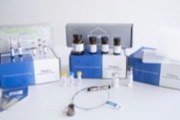
This advanced method offers an end-to-end solution developed around an advanced application, a specialized kit, or an analytical system. It delivers complete functional, ready-to-use protocols that are qualitatively and quantitatively assessed for consistency, executability, and repeatability, usually without needing to make any changes. It operates per batch size and is scalable to accommodate changing requirements.
Peptide analysis can be a demanding process especially with the increased need for a greater understanding of SARS-CoV-2 infection.
Waters SARS-CoV-2 LC-MS kit enables precise and reproducible preparation of three SARS-CoV-2 peptides from the NCAP protein using the Andrew+ pipetting robot.
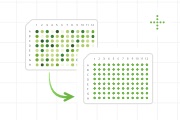
This example method provides a freely adjustable framework for measuring the adaptability of the OneLab environment to workflows from different application fields. It helps to understand various nuances of the code-free, universal protocol designer and provides general indications as to the feasibility of a project. Scripts generally require fine adjustment to correct for variables and support specific labware implementation.
The repetitive pipetting to or from wells during a plate reformatting procedure could introduce errors and variability, which is detrimental to the reliability of experimental results.
Using OneLab software, Andrew Alliance automation solutions provide the best performance in time and precision, thereby making plate reformatting less time-consuming and more accurate.
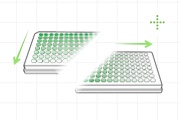
This example method provides a freely adjustable framework for measuring the adaptability of the OneLab environment to workflows from different application fields. It helps to understand various nuances of the code-free, universal protocol designer and provides general indications as to the feasibility of a project. Scripts generally require fine adjustment to correct for variables and support specific labware implementation.
Workflows like ELISA assays, protein content determination and quantitative LC-MS analysis rely on serial dilutions to prepare calibration curves and quality control samples.
This series of methods demonstrates simple 2- and 5-fold serial dilutions in 96-well plates in a row or column-wise fashion. The same script can be executed in a fully automated manner using Andrew+ or guided using Pipette+.
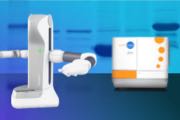
This example method provides a freely adjustable framework for measuring the adaptability of the OneLab environment to workflows from different application fields. It helps to understand various nuances of the code-free, universal protocol designer and provides general indications as to the feasibility of a project. Scripts generally require fine adjustment to correct for variables and support specific labware implementation.
This protocol streamlines filling Bio-Techne’s Simple Western™ pre-filled plate with the Chemiluminescence assay. OneLab’s automation with Andrew+ ensures precise setup, aligning with the same time efficiency and reproducibility found with Jess™ platform, powered by Simple Western™ technology.
Jess system and other Simple Western platforms offer a solution to quicker and better results than traditional Western blot and ELISA.
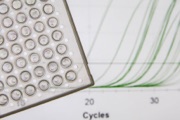
This example method provides a freely adjustable framework for measuring the adaptability of the OneLab environment to workflows from different application fields. It helps to understand various nuances of the code-free, universal protocol designer and provides general indications as to the feasibility of a project. Scripts generally require fine adjustment to correct for variables and support specific labware implementation.
Quantitative RT-PCR is a powerful tool to investigate gene expression. However, several challenges are encountered by scientists during sample preparation, including pipetting errors and DNA contamination.
OneLab addresses these issues by providing step-by-step guidance for pipetting and traceability, so as to mitigate unnecessary waste of reagents and improved data reproducibility.
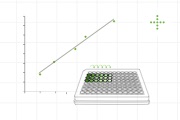
This basic method provides the core methodology for translating a workflow into OneLab-executable script(s) as an attempt to fully or semi-automate a specific procedure. It demonstrates the benefits of automation and highlights OneLab capabilities and best practices to promote solution adoption, helping transition from manual to a more automated approach. It can be used alone or serves as a building block for a more complex workflow and is easily adaptable to users' requirements.
LC-MS analytical method development requires flexible and reproducible sample preparation for accurate and robust analyte quantification.
This method provides example protocols of automated sample preparation for standard curve generation, using the Andrew+ Pipetting Robot with cloud-native OneLab software, ensuring downstream accurate and reproducible LC-MS quantification of different analytes.
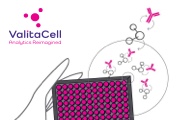
This example method provides a freely adjustable framework for measuring the adaptability of the OneLab environment to workflows from different application fields. It helps to understand various nuances of the code-free, universal protocol designer and provides general indications as to the feasibility of a project. Scripts generally require fine adjustment to correct for variables and support specific labware implementation.
The manufacturing of therapeutic IgG antibodies is a complex process that requires precise monitoring. A major issue to address in relation to IgG measurement is reproducibility.
The Valita®Titer assay combined with Andrew Alliance’s automation and OneLab software provides a standardized and traceable solution for fast and accurate IgG quantitation, thus mitigating the effect of user variability.
